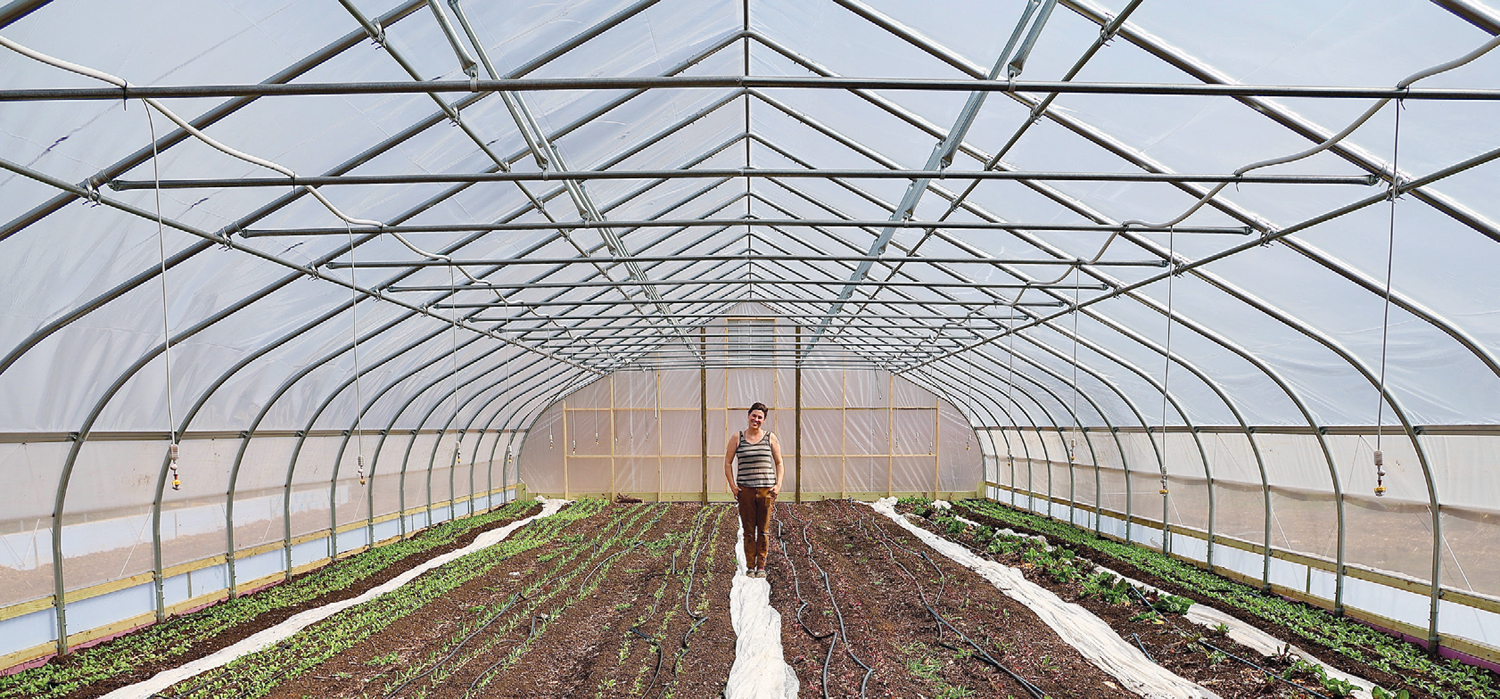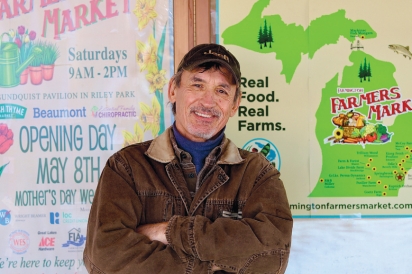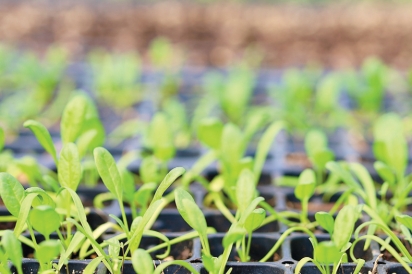Market Town
Farmington Farmers Market is a community resource
Walt Gajewski had lived in Farmington only about a year when something along Grand River Avenue caught his eye.
“I saw a couple trucks in the parking lot, selling some vegetables off the back,” he says, adding there was no formal organization to it, just a few farmers. It stayed that way for a few years until a visioning project between the city and Wayne State University in the late 1990s took the idea “to another level,” he recalls, with the design and construction of a new community pavilion to make a permanent home for the farmers market. That helped position the market as a community resource and, says Gajewski, to help inspire people to come to Farmington as a destination.
Now with its 28th season freshly underway, the Farmington Farmers Market has grown to include 90 vendors on its roster, including about 15 farmers, growers and producers, set up alongside purveyors of gourmet specialty foods and fine craft artisans.
The market has come a long way since those early days, says Gajewski, a retired engineer who worked in the automotive industry before becoming Farmington’s market manager—or caretaker, as he puts it.
“It’s evolved from farmers selling off the back of their trucks to our way of life that we call Saturday life in a Michigan small town,” he says. “We’ve evolved into a family. It’s a little village that pops up in downtown Farmington every Saturday from May through October.”
Even before becoming market manager in 2011, Gajewski was integral as part of that visioning committee and as a volunteer. He says he has “1,000 stories,” but what really sticks out to him is how the market adapted during the year since the pandemic hit. They had to revamp the business model, figure out how to run the market safely and establish themselves as an essential service.
One adaptation that helped make last year successful was expanding the market’s footprint by an additional 10,000 square feet to the adjacent Marketplace Street. That allowed better walkability and safer social distancing for visitors and vendors alike. The changes paid off. The market saw record numbers of shoppers, increasing from 3,000 a week the past few years to just over 3,400 last year.
“We knocked it out of the park for weekly attendance, setting a record for both annual attendance and weekly attendance,” says Gajewski. “And along the way, we celebrated a couple milestones. We welcomed our 1,000,000th visitor in September.”
“It was probably one of my proudest moments, that in the face of a worldwide pandemic, we offered direct access to fresh, locally grown Michigan produce,” he says. “There’s never been a greater sense of family than what was experienced last year, between our farmers, our vendors and especially our volunteers.”
In addition to longtime vendors, or the anchors like Fusilier Farms, Gass Centennial Farm and Goetz Farms, Gajewski also looks forward to welcoming new vendors to the market family.
“The greatest satisfaction I get in recruiting a farm or bringing a farmer to market is bringing the new farmers, the smaller farmers,” he says, noting Michigan is the second-most agriculturally diverse state in the country, accounting for more than $100 billion of the state’s economy. “It starts right with our small farmers, and I’m proud to be a part of that movement.”
One of those farms is northwest Detroit’s Beaverland Farms. Founded in 2015 in the Brightmoor neighborhood, Beaverland Farms mostly sold their salad greens, cucumbers, tomatoes and other vegetables exclusively wholesale to restaurants and chefs. They started selling at the Farmington Farmers Market in 2019 because they wanted to diversify, says Brittney Rooney, who owns and runs the farm with partner Kieran Neal.
Rooney says a couple of factors drew them to the market, including its reputation and proximity to their location in Detroit.
“It’s closer to us than Eastern Market,” she says, adding that she felt welcomed right away. She likes Farmington’s variety of newer and more established vendors. “They have us—which is a very small, kind of niche, salad greens, specialty roots, kind of farm—but then they also have bigger farms that can do things like potatoes and corn and onions. That isn’t really profitable for us just because we can’t produce it on the scale that people want it…. It’s kind of like a one-stop shop.”
For Gajewski, the Farmington Farmers Market is even more than a place to get fruits and vegetables.
“A farmers market is a way for a community to know itself better, help understand itself, and maybe even redefine itself. We like to think of ourselves as much of a community resource as we are as a farmers market.”
“Detroit may consider itself Hockeytown; here in Farmington we like to think of ourselves as being Market Town,” he says.
Find out more about Farmington Farmers Market on page 26.






